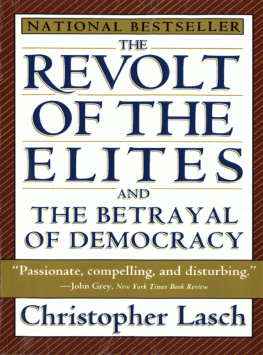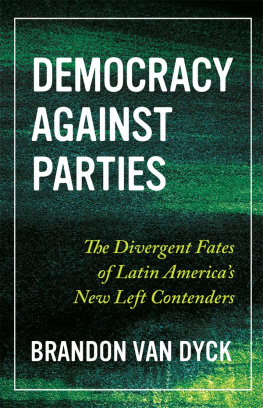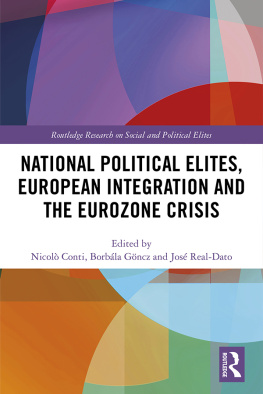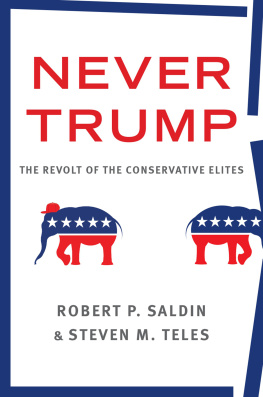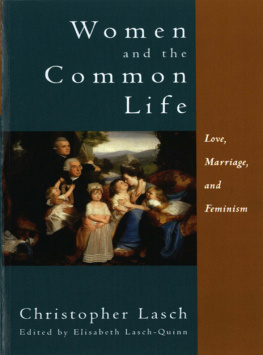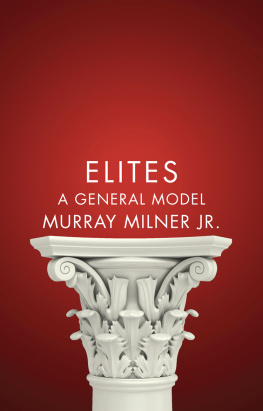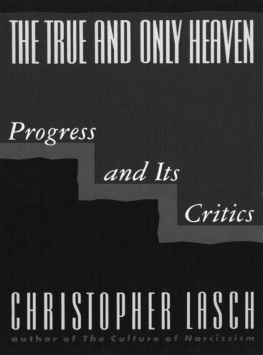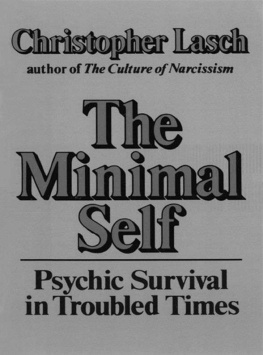
common life, together with a secret conviction that the real problems are insoluble.
George Bushs wonderment, when he saw for the first time an electronic scanning device at a supermarket check-out counter, revealed, as in a flash of lightning, the chasm that divides the privileged classes from the rest of the nation. There has always been a privileged class, even in America, but it has never been so dangerously isolated from its surroundings. In the nineteenth century wealthy families were typically settled, often for several generations, in a given locale. In a nation of wanderers their stability of residence provided a certain continuity. Old families were recognizable as such, especially in the older seaboard cities, only because, resisting the migratory habit, they put down roots. Their insistence on the sanctity of private property was qualified by the principle that property rights were neither absolute nor unconditional. Wealth was understood to carry civic obligations. Libraries, museums, parks, orchestras, universities, hospitals, and other civic amenities stood as so many monuments to upper-class munificence.
No doubt this generosity had a selfish side: It advertised the baronial status of the rich, attracted new industries, and helped to promote the home city against its rivals. Civic boosterism amounted to good business in an age of intense competition among cities, each aspiring to preeminence. What mattered, however, was that philanthropy implicated elites in the lives of their neighbors and in those of generations to come. The temptation to withdraw into an exclusive world of their own was countered by a lingering awareness, which in some circles survived even the riotous self-indulgence of the Gilded Age, that all have derived benefits from their ancestors, as Horace Mann put it in 1846, and that therefore, all are bound, as by an oath, to transmit those benefits, even in an improved condition, to posterity. Only an isolated, solitary being, having no relations to a community around him, could subscribe to the arrogant doctrine of absolute ownership, according to Mann, who spoke not only for himself but for a considerable body of opinion in the older cities, in much of New England, and in New Englands cultural dependencies in the Old Northwest.
Thanks to the decline of old money and the old-money ethic of civic responsibility, local and regional loyalties are sadly attenuated today. The mobility of capital and the emergence of a global market contribute to the same effect. The new elites, which include not only corporate managers but all those professions that produce and manipulate informationthe lifeblood of the global marketare far more cosmopolitan, or at least more restless and migratory, than their predecessors. Advancement in business and the professions, these days, requires a willingness to follow the siren call of opportunity wherever it leads. Those who stay at home forfeit the chance of upward mobility. Success has never been so closely associated with mobility, a concept that figured only marginally in the nineteenth-century definition of opportunity (, Opportunity in the Promised Land). Its ascendancy in the twentieth century is itself an important indication of the erosion of the democratic ideal, which no longer envisions a rough equality of condition but merely the selective promotion of non-elites into the professional-managerial class.
Ambitious people understand, then, that a migratory way of life is the price of getting ahead. It is a price they gladly pay, since they associate the idea of home with intrusive relatives and neighbors, small-minded gossip, and hidebound conventions. The new elites are in revolt against Middle America, as they imagine it: a nation technologically backward, politically reactionary, repressive in its sexual morality, middlebrow in its tastes, smug and complacent, dull and dowdy. Those who covet membership in the new aristocracy of brains tend to congregate on the coasts, turning their back on the heartland and cultivating ties with the international market in fast-moving money, glamour, fashion, and popular culture. It is a question whether they think of themselves as Americans at all. Patriotism, certainly, does not rank very high in their hierarchy of virtues. Multiculturalism, on the other hand, suits them to perfection, conjuring up the agreeable image of a global bazaar in which exotic cuisines, exotic styles of dress, exotic music, exotic tribal customs can be savored indiscriminately, with no questions asked and no commitments required. The new elites are at home only in transit, en route to a high-level conference, to the grand opening of a new franchise, to an international film festival, or to an undiscovered resort. Theirs is essentially a tourists view of the worldnot a perspective likely to encourage a passionate devotion to democracy.
IN THE TRUE AND ONLY HEAVEN, I tried to recover a tradition of democratic thoughtcall it populist, for lack of a better termthat has fallen into disuse. One reviewer surprised me by complaining that the book had nothing to say about democracy (a misunderstanding I have laid to rest, I trust, in not, to the democratization of self-esteem. The current catchwordsdiversity, compassion, empowerment, entitlementexpress the wistful hope that deep divisions in American society can be bridged by goodwill and sanitized speech. We are called on to recognize that all minorities are entitled to respect not by virtue of their achievements but by virtue of their sufferings in the past. Compassionate attention, we are told, will somehow raise their opinion of themselves; banning racial epithets and other forms of hateful speech will do wonders for their morale. In our preoccupation with words, we have lost sight of the tough realities that cannot be softened simply by flattering peoples self-image. What does it profit the residents of the South Bronx to enforce speech codes at elite universities?
In the first half of the nineteenth century most people who gave any thought to the matter assumed that democracy had to rest on a broad distribution of property. They understood that extremes of wealth and poverty would be fatal to the democratic experiment. Their fear of the mob, sometimes misinterpreted as aristocratic disdain, rested on the observation that a degraded laboring class, at once servile and resentful, lacked the qualities of mind and character essential to democratic citizenship. Democratic habits, they thoughtself-reliance, responsibility, initiativewere best acquired in the exercise of a trade or the management of a small holding of property. A competence, as they called it, referred both to property itself and to the intelligence and enterprise required by its management. It stood to reason, therefore, that democracy worked best when property was distributed as widely as possible among the citizens.
The point can be stated more broadly: Democracy works best when men and women do things for themselves, with the help of their friends and neighbors, instead of (Populism or Communitarianism?), 6 (Conversation and the Civic Arts), and 7 (Racial Politics in New York). It is the decline of those communities, more than anything else, that calls the future of democracy into question. Suburban shopping malls are no substitute for neighborhoods. The same pattern of development has been repeated in one city after another, with the same discouraging results. The flight of population to the suburbs, followed by the flight of industry and jobs, has left our cities destitute. As the tax base shrivels, public services and civic amenities disappear. Attempts to revive the city by constructing convention centers and sports facilities designed to attract tourists merely heighten the contrast between wealth and poverty. The city becomes a bazaar, but the luxuries on display in its exclusive boutiques, hotels, and restaurants are beyond the reach of most of the residents. Some of those residents turn to crime as the only access to the glittering world seductively advertised as the American dream. Those with more modest aspirations, meanwhile, are squeezed out by high rents, gentrification, and misguided policies intended to break up ethnic neighborhoods that allegedly stand in the way of racial integration.
Next page
